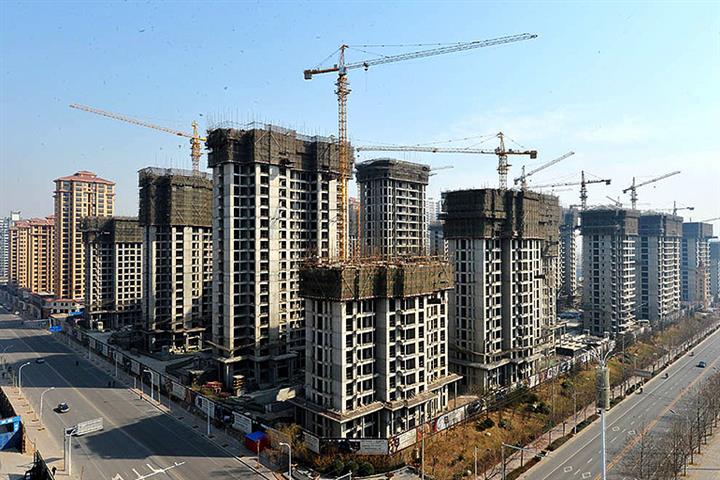 China's Urbanization Drives a Rural Property Bubble
China's Urbanization Drives a Rural Property Bubble(Yicai Global) Oct. 13 -- China, which has over 60 billion square meters of residential buildings, would face a major rural property bubble if urbanization continues apace. But apart from a large number of homes becoming permanently vacant, the situation should not spark a financial crisis as the rural housing market is leverage-free.
China’s urbanization rate is about 64 percent. If that followed international trends, it could increase by a further 10 to 15 percentage points, meaning that another 150 million to 200 million people could move to urban areas from rural regions.
Supply and demand in the real estate market can be observed in two ways: the first is static, involving the number of built houses and per capita living area; and the second is dynamic, as the property sector’s development speed can be compared with population growth.
In the 17 years through 2020, China built a total housing area of 37.1 billion sqm, with an average of 2.2 billion sqm of new residential area added every year, according to statistics from the China Statistical Yearbook on Construction and the China Real Estate Statistics Yearbook.
In 2019, China had 35 billion sqm of urban residential area and 25.4 billion sqm of rural residential area, totaling 60.4 billion sqm, according to the results of a survey released by the National Bureau of Statistics. The urban population was about 880 million, while the rural tally stood at about 520 million, with a per capita residential area of 39.8 sqm and 48.9 sqm, respectively.
From 2005 to 2020, the rural per capita residential construction area grew 3.3 percent annually, while the permanent resident population fell 2.3 percent a year, according to data from census and survey results.
If urbanization continues, a great number of houses in rural areas will be left empty for good, resulting in a huge property bubble.
Rural properties tend not to carry a lot of leverage as they are not very expensive, so they are unlikely to trigger a financial crisis. But with no demand, a large amount of existing housing in rural areas will become useless. The burst of the rural property bubble will be slow and its effects will be long-lasting.
Editor: Emmi Laine, Xiao Yi